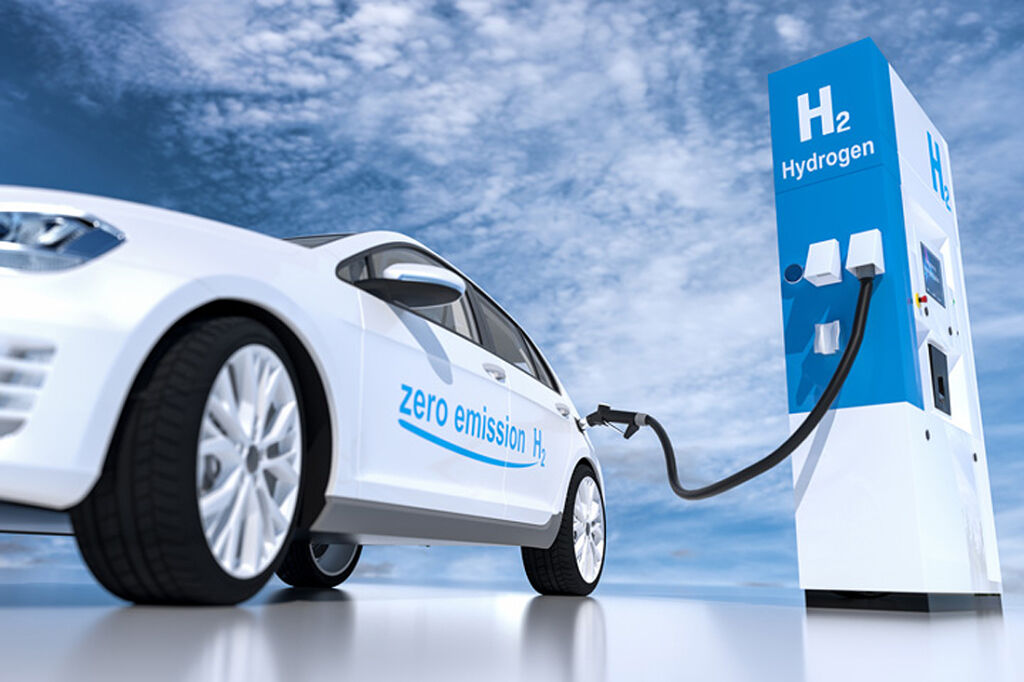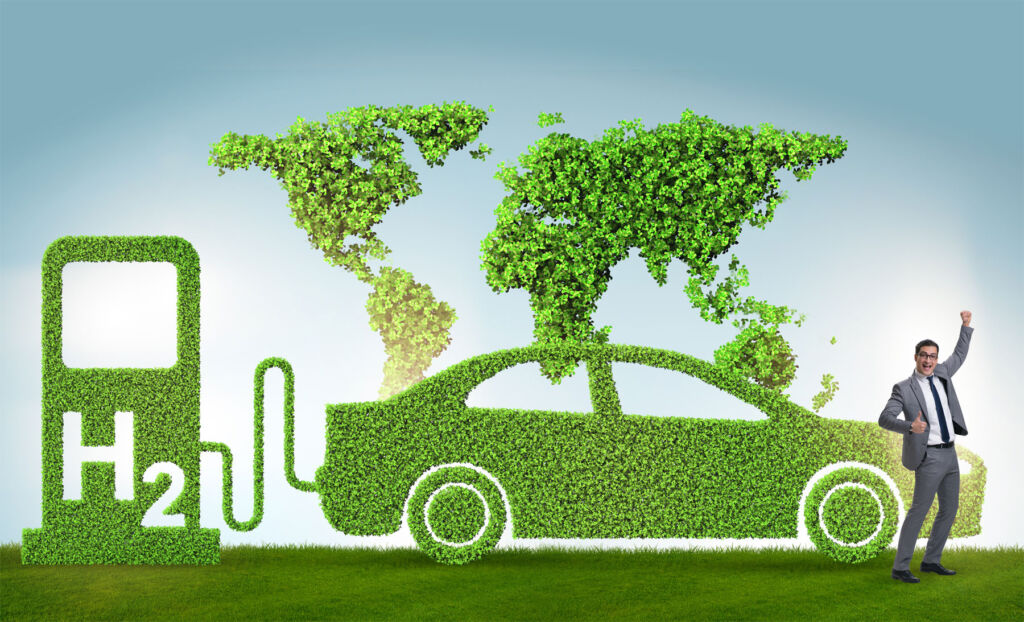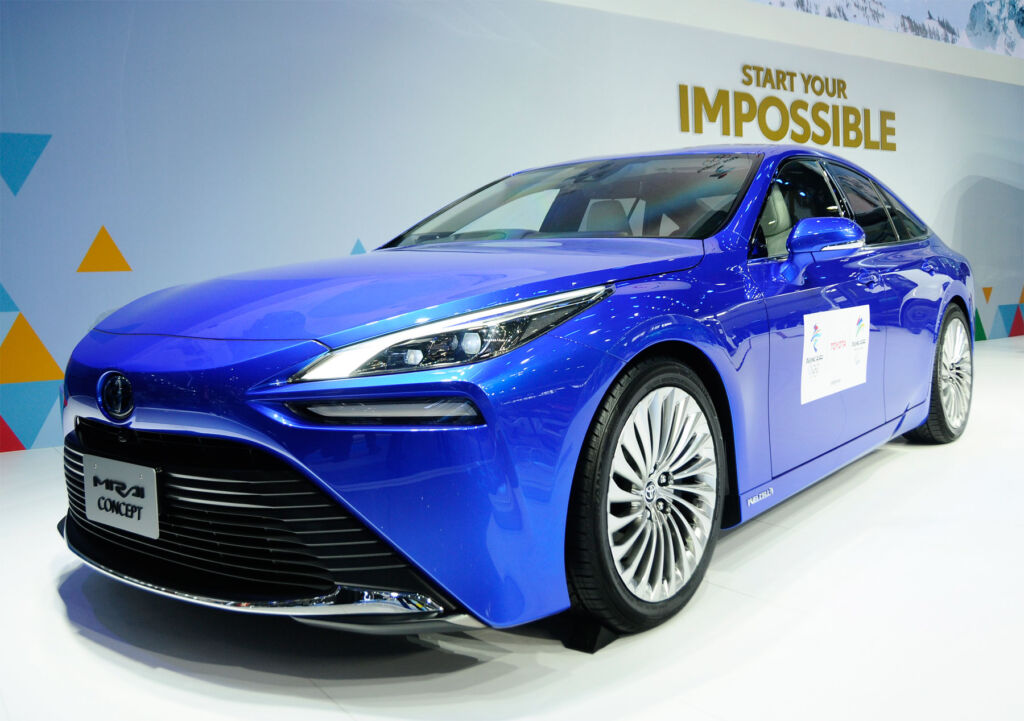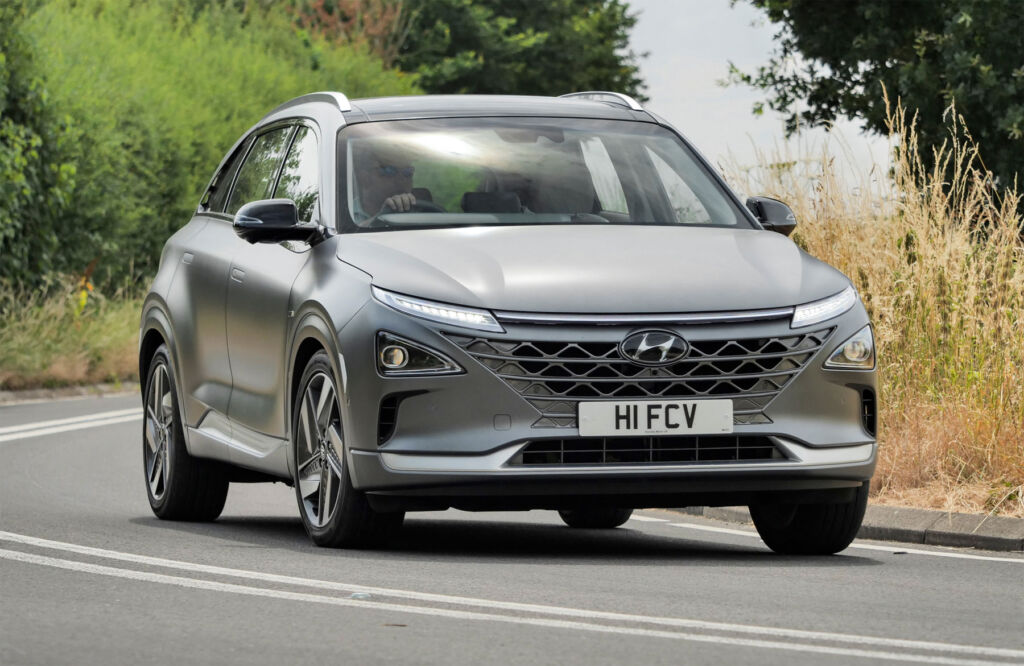
Anyone watching their television will at some point see an advertisement for the latest electric-powered vehicle, tugging on viewers’ environmental heartstrings, subliminally stating it is the only way to help the planet. Substantial investment, influential voices and massive advertising budgets have ensured that many see this as the only way; it isn’t. There is, perhaps, a better option, and it comes in the form of Hydrogen Fuel Cells.
Over recent years, there’s been a battle brewing in the vehicle sector, Electric Power vs. Hydrogen Power, much like there was in the 1980s when it was VHS vs. Betamax. One of the most-used arguments that many electric supporters have put forward is they are safer to own; however, recent news of exploding electric cars and the issues arising from dealing with ones that have been in accidents have not only put that argument to bed, it seems to have reinvigorated the support for hydrogen.
Although pure electric power has captured the public imagination, in no small part due to massive advertising, political views, and the backing of large bodies, it is not the only option that sits under the umbrella of being ‘environmentally friendly’. There is another technology, which, in the grand scheme of things, brings equal benefits with much less stress and infrastructure hassles, and it is Hydrogen Fuel Cell Power. Gayatri Mohite explains why in this guest feature.
Hydrogen fuel cell vehicles employ hydrogen for their internal electric motor. These vehicles do not emit greenhouse gases during their operating phase, unlike gasoline and diesel-powered vehicles.
The growth of the global hydrogen fuel cell industry is driven by several factors, such as a rise in environmental concerns, amplified governmental efforts to foster the development of hydrogen fuel cell infrastructure, substantial initial investments required for infrastructure establishment, and ongoing technological progress with promising prospects.
According to the latest market study by Allied Market Research, the global hydrogen fuel cell market is projected to cite notable growth throughout the forecast timeframe. Several technologies are being introduced to the market that align with the eco-friendly concept, aiming to preserve the environment due to growing concerns about environmental deterioration and the exhaustion of natural resources.
In addition, rising awareness of the consequences of air pollution and the escalation of traffic-related issues and greenhouse gas emissions are propelling the acceptance of hydrogen fuel cell vehicles. This is attributed to their more environmentally friendly nature compared to conventional vehicles.
Advantages of Hydrogen fuel Cell Vehicles:

Fast Charging Speed:
The recharging process for hydrogen fuel cell power units is exceptionally swift, like the charging time for traditional internal combustion engine (ICE) vehicles, and notably faster when compared to battery-powered electric vehicles.
While electric vehicles require anywhere from 30 minutes to several hours for charging, hydrogen fuel cells can be recharged in less than five minutes. This rapid charging duration ensures that hydrogen-powered vehicles offer the same level of versatility as conventional automobiles.
Highly Versatile:
With ongoing technological progress, hydrogen fuel cells are poised to supply energy for a wide array of stationary and mobile applications. While hydrogen-fueled vehicles represent a single instance, the technology’s potential extends to smaller uses like household items as well as larger heating systems.
Comparable to internal combustion engine (ICE) powerplants, hydrogen fuel cells separate the roles of energy storage capacity (i.e., the fuel tank) and engine size. This differs from battery-based power systems, where power increases linearly with mass, which offers considerable design flexibility.
More Powerful and Energy Efficient as Compared to Fossil Fuels
Hydrogen fuel cell technology offers a dense and efficient energy source. Hydrogen boasts the highest energy content per unit weight among commonly used fuels.
Both high-pressure gaseous and liquid hydrogen exhibit approximately three times the energy density by weight (around 120MJ/kg) compared to diesel and LNG while also sharing a similar energy density by volume to natural gas.
Hydrogen Fuel Cell Vehicles vs Electric Vehicles
With the growth of hydrogen production and infrastructure investments, vehicles powered by hydrogen will emerge as a more sustainable option compared to electric vehicles (EVs).
Electric vehicles might not present an optimal substitute for internal combustion engine (ICE) vehicles due to their emissions profile being contingent on the methods used to generate the electricity.
Prominent car manufacturers such as BMW and Audi stated that shifts in political dynamics might lead to a preference for hydrogen fuel cell vehicles over electric vehicles (EVs). These companies are currently in the process of creating prototypes for hydrogen fuel cell passenger vehicles along with their electric cars as part of their efforts to transition away from fossil fuels.
Previously, Japanese automakers Nissan, Toyota, Honda, and South Korea’s Hyundai were the primary players successfully developing hydrogen fuel cell cars for several years. Additionally, China is expanding its hydrogen refuelling infrastructure, while the EU aims to establish more hydrogen refuelling stations for commercial vehicles.
Upcoming Hydrogen Fuel Cell Vehicles in Auto Expo 2023:
Toyota Mirai:

In 2022, Toyota Kirloskar Motor established a Memorandum of Understanding (MoU) with ICAT (International Centre for Automotive Technology) and IOCL (Indian Oil Corporation Limited) to initiate the Mirai pilot project. Toyota is now preparing to showcase its hydrogen technology at the 2023 Auto Expo.
The Mirai Fuel Cell Electric Vehicle (FCEV) comes with three hydrogen tanks and stands out from electric vehicles by refuelling all three tanks in under 5 minutes, providing a range of 650 Km, as compared to the extended charging times of electric cars.
Hyundai Nexo:

Hyundai unveiled its Nexo fuel-cell vehicle at the 2020 Auto Expo, and Hyundai may take advantage of this opportunity to showcase the Nexo once again, potentially sparking more interest in hydrogen-powered vehicles. The Nexo Fuel Cell Vehicle (FCV) is already available for purchase in the United States, and Hyundai has even exhibited the Nexo FCEV at their Gurugram headquarters. The Nexo FCV is equipped with a hydrogen fuel cell with a battery pack, resulting in a power output of 183PS.
About the Author
Gayatri Mohite is an emerging author who loves to explore new things. An addiction to reading motivates her to write. She also loves to sing, travel, and cook. A fresher who is constantly upgrading her skills has embarked on a new journey to touch up her expertise even more. She can be reached at gayatri.mohite@alliedanalytics.com.
Read more motoring features and guides in our dedicated section.
![]()




You must be logged in to post a comment.